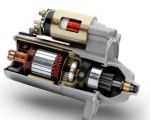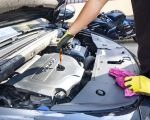- 1-Common-Causes-of-Car-Shaking-While-Driving
- 2-Diagnosing-the-Source-of-the-Shake
- 3-Car-Shaking-at-Different-Speeds-What-it-Means
- 4-Effects-of-Worn-or-Damaged-Tires-and-Wheels
- 5-Engine-and-Transmission-Issues-Causing-Vibration
- 6-When-to-Visit-a-Professional-for-Car-Shaking-Problems
- 7-Real-Life-Case-Studies-and-Driver-Experiences
- 8-Trusted-Services-from-Rescue-Towing
1. Common Causes of Car Shaking While Driving
Car shaking while driving is a frequent issue that can stem from multiple causes, including tire imbalance, misaligned wheels, or suspension problems. These mechanical issues create vibrations felt through the steering wheel, seats, or the entire vehicle.
Other causes might include worn brake components, uneven tire wear, or engine misfires. Recognizing the symptoms early helps prevent further damage and ensures safety on the road.

Pick Your Part - Help Yourself
1232 Blinn Ave, Wilmington, CA 90744, USA
2. Diagnosing the Source of the Shake
Pinpointing the source of your car’s shaking involves careful observation. For instance, shaking during acceleration could indicate engine or drivetrain issues, while vibrations at higher speeds often relate to tire balance or alignment.
Listening for accompanying noises and noting when the shake occurs—such as braking, turning, or idling—provides critical clues. A thorough inspection by a mechanic or using diagnostic tools can identify the precise cause.

Junior Auto Body Solutions LLC
10409c Merrick Blvd, Jamaica, NY 11433, USA
3. Car Shaking at Different Speeds: What it Means
Shaking at low speeds might signal problems with the suspension or tires, while high-speed vibrations often suggest wheel balancing or alignment faults. If shaking occurs during braking, brake rotors or pads might be warped or worn.
Understanding these patterns assists drivers in communicating effectively with repair professionals and addressing the problem promptly.
4. Effects of Worn or Damaged Tires and Wheels
Worn, unbalanced, or damaged tires are leading causes of car shaking while driving. Tire tread wear or bubbles can cause instability, while bent wheels produce vibrations that worsen over time.
Regular tire maintenance, including rotation, balancing, and alignment, is essential. Replacing tires before excessive wear ensures smoother rides and improved safety.
5. Engine and Transmission Issues Causing Vibration
Engine misfires, faulty spark plugs, or transmission problems can also cause your car to shake. When the engine struggles to deliver power smoothly, vibrations become noticeable, especially during acceleration.
Addressing these issues quickly prevents further mechanical failures and costly repairs.
6. When to Visit a Professional for Car Shaking Problems
If your car shakes persistently or worsens, it’s crucial to consult a professional mechanic. Immediate inspection is vital if shaking affects vehicle control or is accompanied by warning lights, unusual noises, or smells.
Early intervention helps diagnose and fix problems before they compromise safety. Professionals use specialized equipment to accurately identify and repair underlying causes.
7. Real-Life Case Studies and Driver Experiences
John, a driver from Texas, experienced severe shaking at highway speeds caused by a bent rim after hitting a pothole. Prompt repair prevented further suspension damage and restored smooth driving.
Another case involved Maria, who noticed shaking during braking; an inspection revealed warped brake rotors, which were replaced to eliminate vibrations and improve stopping power.
These stories highlight the importance of attentive maintenance and timely repairs.
8. Trusted Services from Rescue & Towing
For drivers facing car shaking while driving and other vehicle issues, Rescue & Towing offers reliable roadside assistance, towing, and expert repair referrals. Their professional team ensures safe handling and quick solutions to keep you on the road.
Visit Rescue & Towing to access trusted automotive services and keep your vehicle in top condition.





























